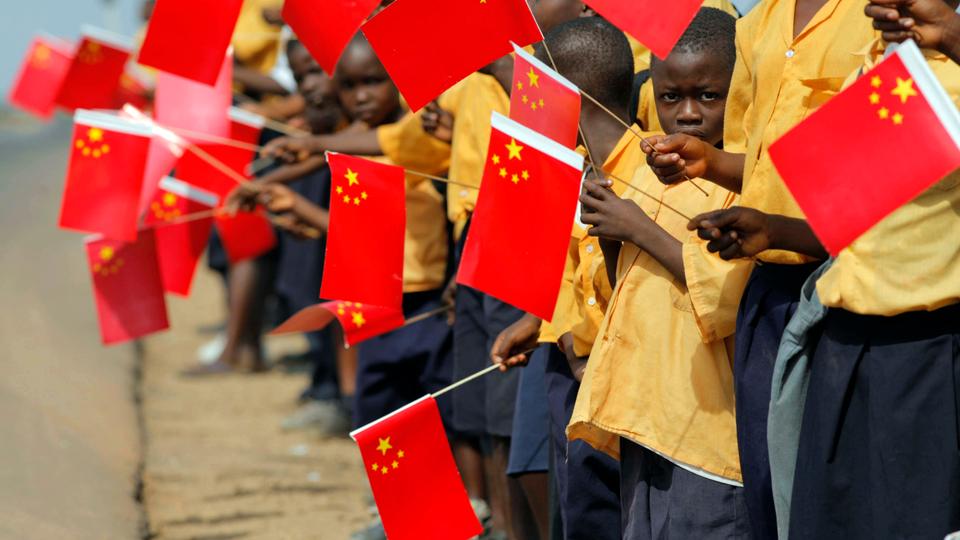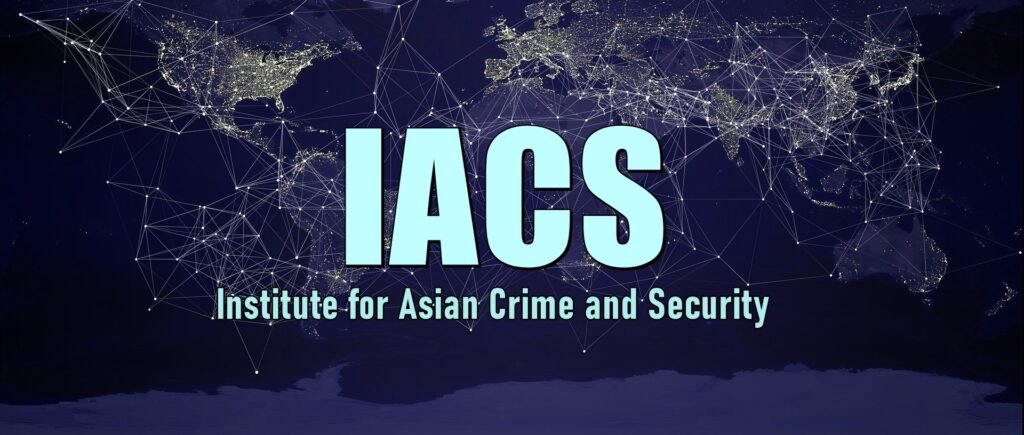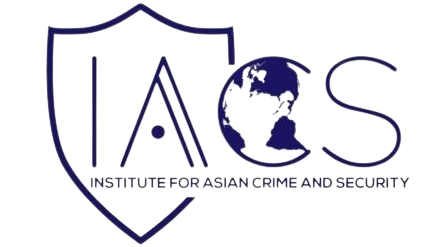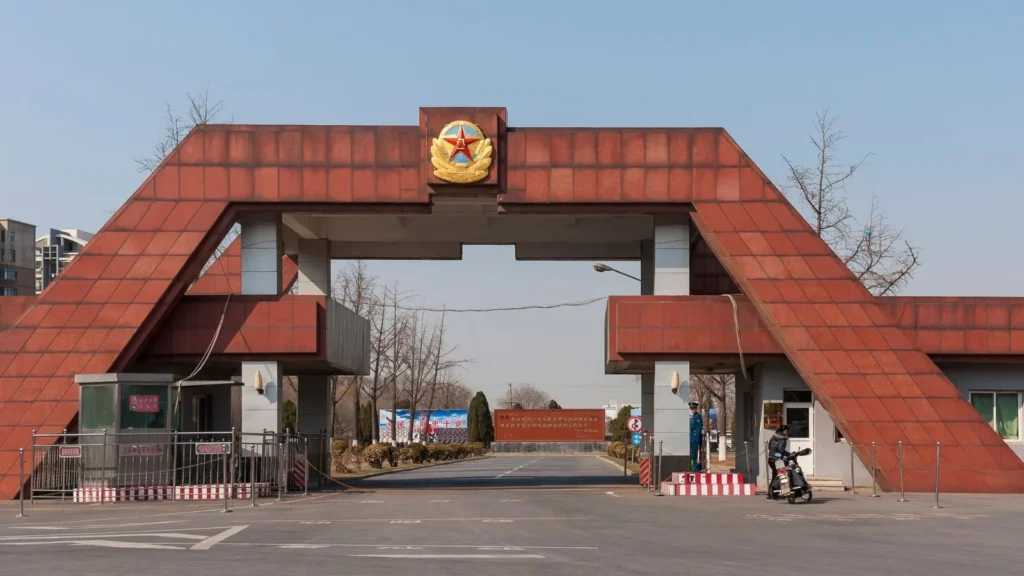The fact that China has alarmingly expanded its political and military influence, at increasingly unprecedented rates, has caused worry and consternation among other international actors, who perceive this build-up as either a direct or indirect threat to regional and international stability. Meanwhile, the international balance of economic and military power has witnessed dramatic shifts which have facilitated this expansion. China has not only expanded its influence in various spheres and regions, such as Africa and the Middle East, but has also become a leading supplier of economic and military aid globally.
What has led to these efforts of expansion?
Certainly, one major contributing factor has been an increasing antagonism between China and the United States and her allies, both East and West. Further, as we shall see, certain specific events have wounded Chinese national pride and enflamed an already ‘enraged dragon.’ While the previous American administration coordinated by President Trump had taken a particularly strong line with its Chinese counterparts, notably in trade relations, the current administration under President Biden has adopted a much more conciliatory approach toward China. When they have challenged China, on human rights issues, for instance, much of it has been based on apparently empty rhetoric. President Biden’s unprecedented withdrawal from and debacle in Afghanistan and an increasingly weakened military due to policies surrounding his unfettered pandemic mandates have led its allies to question the support of the United States and view the U.S. as a less than a dependable partner in the face of an increasingly hostile environment. Indeed, President Biden’s neutral position and vacillation on the defense of Taiwan are concerns for the Taiwanese people. The need for oil and other natural resources to fuel China’s enormous industrial appetite has been another reason for its imperial pretensions, particularly in Africa. China’s contribution to the development of major infrastructure projects (e.g. highways, schools, hospitals, bridges, and roads) has been couched in terms of a win-win policy, and certainly, there is something to be said for this strategy given the lackluster interest of other nations. Both Russia (in Libya and Mali) and the United States (through the AFRICOM military support apparatus) have also been expanding their presence in Africa, albeit at a far less aggressive pace.[1]
The territorial expansion by China in the Pacific has also set off alarm bells and, at times, anti-Chinese rioting within her immediate neighbors, notably Taiwan, Japan (the Senkaku Islands/Diaoyutai Qundao and Okinotori Islands), Vietnam, and the Philippines. Fortunately, at least for the present, the majority of regional threats stemming from the People’s Republic of China have been couched in rhetoric rather than actual aggression. More recently, however, the threats have begun to take on more ominous overtures, such as the repeated invasion of Taiwanese and Japanese air and maritime space. This increased pressure in the East and South China sea has increased regional tensions. Historically, Imperial China has considered itself culturally the center of the world. Whether people like it or not, and agree or not, the Chinese harbor an inherent egocentric sense of cultural bias.
China’s African Empire[2]
What has been referred to as “soft imperialism” and its related cultural bias toward racial superiority is underscored in Howard French’s excellent book “China’s Second Continent.” French postulates that the more than one million Chinese migrants now living in the African continent harbor racist intent and are dismissive toward their African hosts. These migrants have moved to the “dark continent” due to a variety of reasons including diminished living space and enhanced opportunity, and a less polluted environment. Unfortunately, the same practices that prevail in the former homeland are often exported along with the migrating population. While there have been countless reports of the Chinese exploiting Africa, the French adopts a more experiential and measured analysis.

Figure 1 Source https://www.indianfolk.com/chinese-neo-colonialism-africa-edited/
The East African nation of Djibouti currently hosts five military bases, in addition to the United States base at Camp Lemonier. Italy, Spain, Japan, and France all have a military presence, interact with the United States, and share mutual cooperation. The Chinese, who opened their own military facility there in 2017, do not engage with their western counterparts. Early rumors that the Chinese would expand their military presence have currently been borne out. These issues will be addressed in more detail further on. For the moment, the big question being raised is “what is fueling these efforts at territorial expansion and global outreach?” Whether we are speaking about China, Russia, or the United States, does this expansionism represent a scramble to exploit African natural resources, an effort at ideological expansion, a push for military-strategic power, or even a combination of all these elements? Whatever the reason, the past paternalism, and neglect of Africa, by other nations, notably the United States, is inexcusable and has left a valuable and strategic opening for an increasingly voracious dragon.[3] Regardless of the underlying strategic purposes, it is well worth noting that in 2015, while exports to Europe leveled out at 1.36%, those to the U.S. rose to 402%, but both of these were overshadowed by a whopping 2126% for China.[4] Are these efforts therefore aimed at a financial gain?
In its most recent expansions at the military level, China has increased concerns with rival nations. These efforts have been related to the establishment of military bases along the west coast of Africa. According to the Wall Street Journal (WSJ), China has been soliciting the African nation Equatorial Guinea for permission to establish a permanent military presence in the country. The best estimates are that China is looking to establish a naval base near the island capital of Malabo off the northern coast and close to Cameroon. Should this plan succeed, this would represent the first time China has established a military presence in the Atlantic. According to the report, U.S. Deputy National Security Adviser Jon Finer visited Equatorial Guinea in October on a mission to persuade the government to not allow the planned expansion of the Chinese (PLA) naval forces from its current 350 ships to a projected 460 by 2030.
China’s Military Build-up and Intimidation in Asia
China has not only been exercising its financial and geopolitical prowess, but also flexing its military muscle, notably in Asia. This ranges from events such as a staged amphibious landing simulating an invasion of Taiwan to increasing military salaries and expanding the power of paramount leader Xi Jinping to wage war. Additionally, according to reports from Georgetown University, China is and has been utilizing artificial intelligence (AI) to simulate attacks on Taiwan. Taiwan’s international success has been a thorn in the side of the communist regime since its inception, and the Chinese rhetoric has been consistent in asserting that Taiwan is part of China. This has created two opposing political points of view. The first is China’s “One China Principle,” and the other being the complex U.S. “One China Policy,” which are actually two quite different perspectives. Thus, we may be looking at a scenario of not whether China will invade Taiwan, but when.
In the latest news, there has been a political backlash when Lithuania extended trade relations and allowed Taiwan to establish a diplomatic presence in Lithuania. Chinese Foreign Ministry spokesperson Lijian Zhao lashed out at Lithuania threatening that Lithuania would “end up in the trashcan of history.” China retaliated by refusing to clear Lithuanian shipments and shipments containing Lithuanian components through customs, resulting in a form of commercial coercion. China has also attempted to apply pressure on Lithuania via the European Union.[5]

Figure 2 The Chinese military trains with its HQ-16 medium-range air-defense missiles during an exercise in August 2020 Image: Wikicommons
If this were not worrying enough, there have been dramatically increasingly incursions and violations of the maritime and airspaces over both Taiwan and Japan. Even more alarmingly, a recent Pentagon report made assertions that the Chinese nuclear weapons stockpile could quite plausibly see a dramatic increase by the year 2030, raising its total count of nuclear warheads to a massive 1000, a far greater increase than initially predicted in the 2020 report. By comparison, the United States stockpile has been limited to 3,750 warheads in 2020. The military newspaper, The Stars and Stripes, reports that “(t)he Chinese army has approximately 975,000 active-duty troops in combat units, the largest naval fleet in the world with about 355 Navy ships, and the third-largest aviation force with more than 2,800 aircraft, according to the report.“ [6] In addition to this powerful naval armada, China is rapidly expanding other military areas of focus such as the construction of a third aircraft carrier (currently nearing completion), and the development of hypersonic aircraft, enhanced delivery systems, and an increase in cyber intelligence efforts. Despite these alarming reports, steadfast technological development, and military buildup, American military leaders, such as General Mark Milley of the Joint Chiefs of Staff, have failed to take heed. Following their obvious incompetence in Afghanistan, such negligence may well serve to fuel the Chinese buildup of available military options.

Figure 3 China’s Dongfeng DF-17 hypersonic glide. https://asiatimes.com/2020/08/why-there-wont-be-a-us-china-war/ Photo: AFP
Many researchers and investigators remain pessimistic and certainly more realistic regarding the apparent efforts involving Chinese expansionism. Brahma Chellaney, in a most insightful and informative article for The Hill, posits “China’s border aggression against India since April dovetails with a broader strategy of territorial aggrandizement that it has pursued in the period since its disastrous 1979 invasion of Vietnam. That strategy, centered on winning without fighting, has driven its bullet-less aggressions, from seizing Johnson Reef in 1988 and Mischief Reef in 1995 to occupying the Scarborough Shoal in 2012. And since launching major land reclamation in 2013, China has changed the South China Sea’s geopolitical map without firing a shot.”[7]

Figure 4 China’s “Submarine killer” The Dongfeng-DF -26 https://asiatimes.com/2020/08/why-there-wont-be-a-us-china-war/
Geopolitical Maneuvers and Espionage
Under the guise of friendly cooperation, and in order to deflect criticism in its role related to the worldwide Coronavirus pandemic, China has attempted to bolster its tarnished international reputation. However, its theft of military plans, designs, and its espionage efforts have been rapidly expanding. According to United States Department of Justice records dating from 2019 “Zaosong Zheng, 30, a Chinese national, was arrested on Dec. 10, 2019, at Boston’s Logan International Airport and charged by criminal complaint with attempting to smuggle 21 vials of biological research to China.”[8] In addition to this individual, Yanqing Ye, 29, another Chinese national, was charged in an indictment …..with one count each of visa fraud, making false statements, acting as an agent of a foreign government and conspiracy. Ye is currently in China. These individuals were aided and abetted by a convicted Harvard University professor, Dr. Charles Lieber who colluded with China under the Thousand Talents Program in exchange for monetary compensation. Lieber was convicted for lying about his involvement with the Chinese government.[9]

Figure 5 https://www.bostonherald.com/2020/01/30/wanted-by-the-fbi-chinese-national-who-studied-in-boston/
In other related economic news, the United Arab Emirates (UAE) has indefinitely suspended discussions on a deal worth $23.3 billion for 50 American Lockheed F-35 stealth fighters, 18 General Atomics MQ-9B reapers drones, and various air-to-air and air-to-ground munitions, mainly produced by Raytheon, from the United States. This comes as yet another major setback to the President Biden administration that is already increasingly seen as being incompetent. The reticence on the part of the UAE stems from American opposition to Chinese 5G technology, specifically that produced by Huawei, which officials fear could theoretically and technically compromise the F-35 fighter systems and other American technology. The United States also pressed home its concerns relating to a Chinese military port in Abu Dhabi and the security issues this poses for American interests. The constraints at the heart of the issue did not exist under the original offer presented by former President Trump but have been amended by the current administration under President Biden.
Conclusion
There is much more that could be written concerning the rise of the dragon, i.e. the People’s Republic of China, and her imperialistic pretensions and there clearly is room for further discussion. There is absolutely no doubt about China’s desire to expand its territorial borders and increase its already powerful financial and political influence. The real question is how long and how far these efforts will go before running up against a serious obstacle. China faces its own challenges including a limited and aging demographic, widespread pollution, and a lack of natural resources. These matters have been compounded by political dissatisfaction and struggles for independence on different fronts, including Tibet, Hong Kong, Taiwan, and Uyghur communities. It’s possible that only time will tell how these issues will play out.
Endnote:
[1] BBC report. December 3, 2021: https://www.youtube.com/watch?v=fRAgqds4ro4
[2] For an excellent source of literature relating to Sino-African relations readers are directed to the following site: https://china-africa.ssrc.org/teaching-research-resources/recent-books-reports/
[3] Readers are directed to this enlightening interview with Howard French: https://www.afrikanheritage.com/is-china-in-africa-something-to-fear/
[4] Ibid
[5] https://americanmilitarynews.com/2021/12/china-threatens-lithuania-will-end-up-in-trashcan-of-history-over-taiwan-ties/
[6] https://www.stripes.com/theaters/us/2021-11-03/china-military-report-nuclear-hypersonic-expansion-pentagon-milley-3482779.html
[7] https://thehill.com/opinion/international/513574-chinas-expansionism-enters-dangerous-phase?rl=1
[8] https://www.justice.gov/opa/pr/harvard-university-professor-and-two-chinese-nationals-charged-three-separate-china-related
[9] https://edition.cnn.com/2021/12/21/politics/charles-lieber-harvard-china-ties-guilty/index.html.
Image Credit: Wikidocumentaries
About the Author: Dr. James P. Welch holds a Ph.D. in international criminal law from Leiden University.








